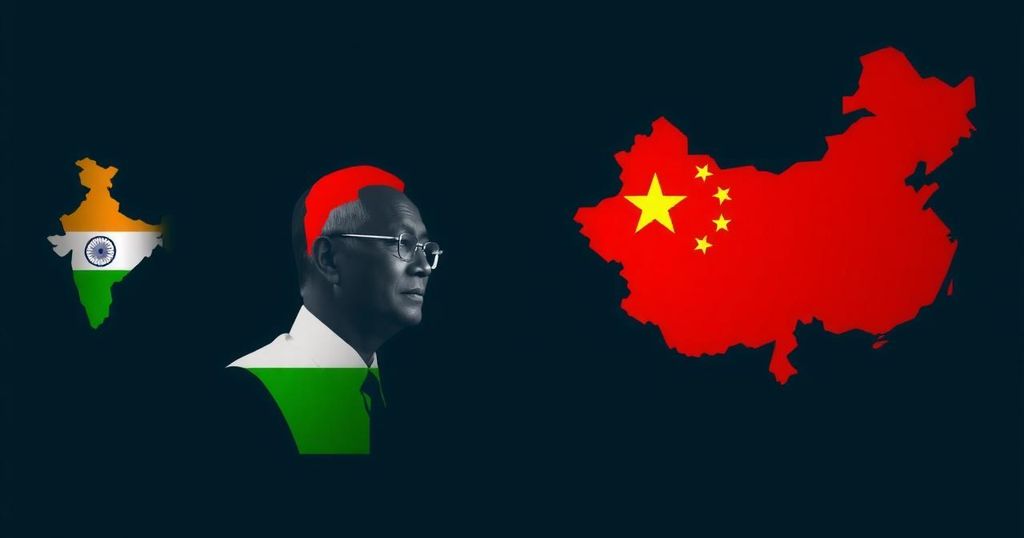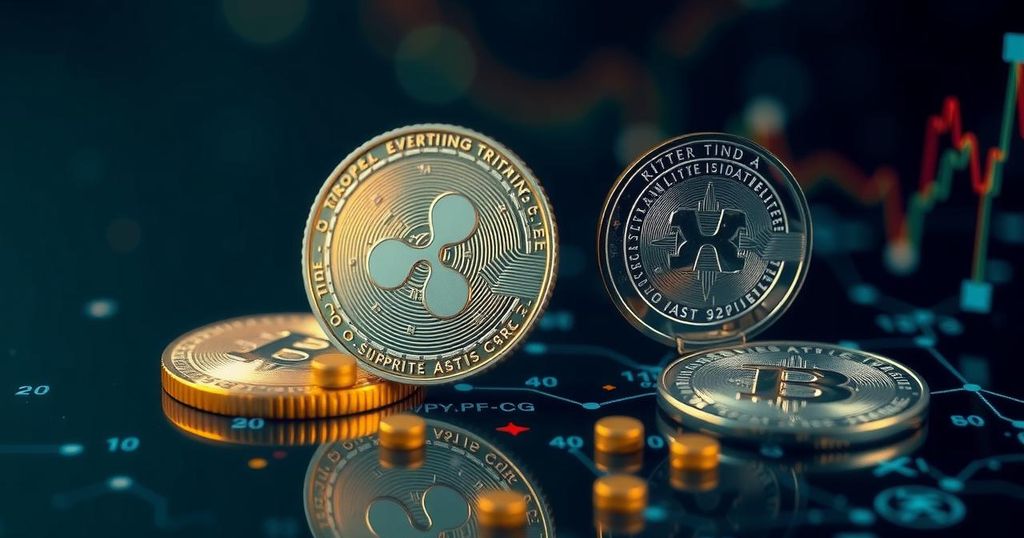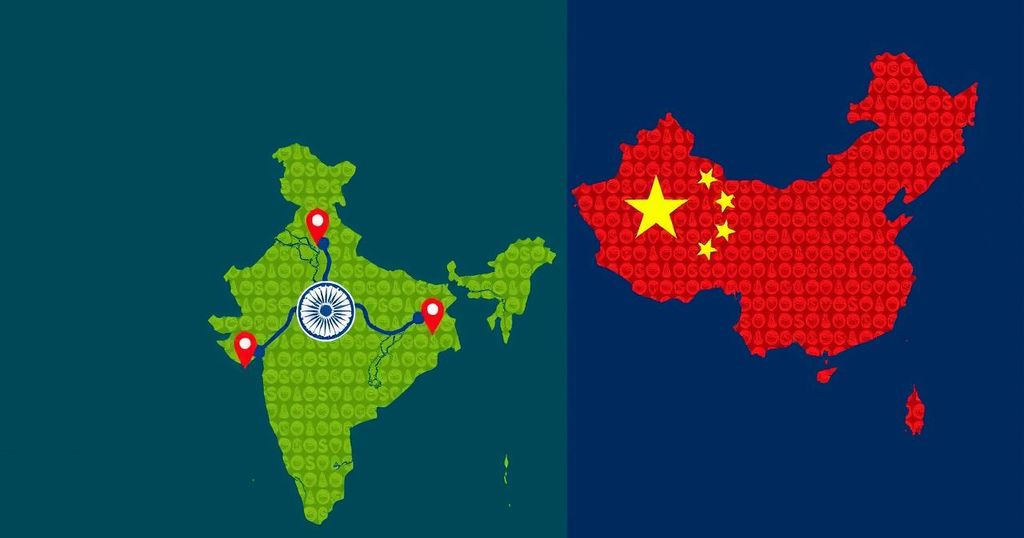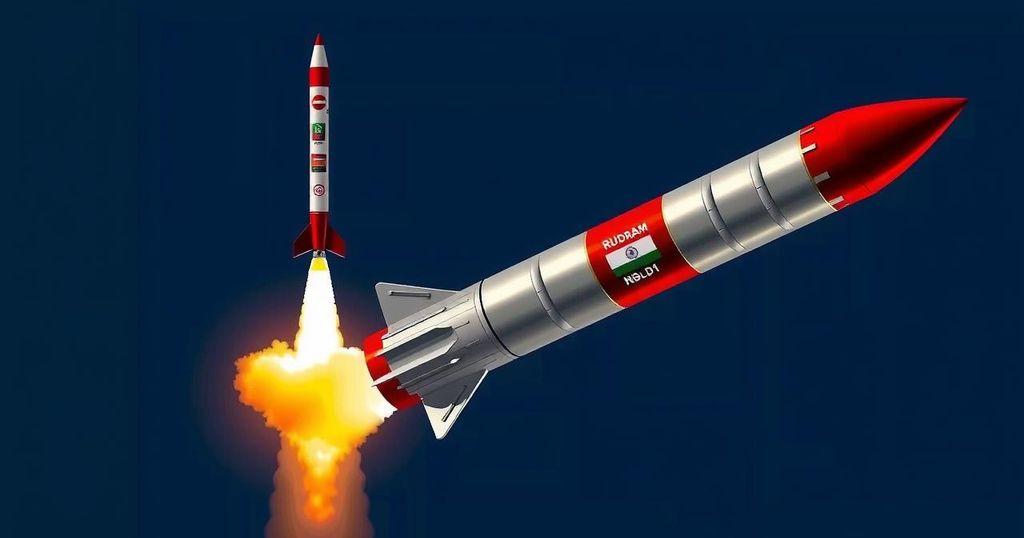Navigating Diplomatic Waters: Sri Lanka’s Dissanayake on India and China Partnership
Anura Kumara Dissanayake, Sri Lanka’s newly elected President, seeks to avoid geopolitical entanglements between India and China, while recognizing both as valued partners. He emphasizes the importance of international cooperation for Sri Lanka’s recovery from its financial crisis and indicates intentions to renegotiate IMF loan conditions related to tax hikes that have adversely affected citizens.
In a recent interview, Sri Lanka’s newly-elected President, Anura Kumara Dissanayake, articulated his intention to steer clear of being caught between the competing influences of India and China, while acknowledging the importance of both nations as key partners. Since taking office, President Dissanayake faces numerous challenges arising from a financial crisis that has beleaguered the country since 2019, leading to a sovereign default in April 2022. He emphasizes the necessity for financial assistance from various global partners, including the West, the Middle East, and Africa, in addition to India and China. During his discussions, Dissanayake reiterated his commitment to maintaining Sri Lanka’s sovereignty without aligning with any geopolitical factions. He expressed the need for cooperation with both neighboring giants, specifically stating, “We also don’t want to be sandwiched, especially between China and India. Both are valued friends and we expect them to become closer partners.” Despite speculation surrounding his alleged sympathies toward China, he has sought to reassure both India and the United States regarding his foreign policy stance, emphasizing that India is “crucial” for Sri Lanka’s future economic stability and regional security. Following his election victory, Prime Minister Narendra Modi congratulated him, expressing eagerness to strengthen bilateral relations, which Dissanayake reciprocated, stating his commitment to enhancing cooperation for the benefit of both nations and the broader region. In light of the growing concerns regarding China’s military presence in Sri Lanka, Dissanayake has also firmly asserted that his administration will not permit Sri Lanka to become a military outpost for any power. As the country navigates its dire financial predicament, which has prompted significant international support, including a recent $3 billion IMF bailout, Dissanayake plans to renegotiate the terms of these loans. Many in Sri Lanka believe that the stringent conditions have contributed to tax increases and budget cuts that aggravated the cost of living crisis faced by citizens. Although this renegotiation might complicate and potentially delay necessary financial aid, Dissanayake maintains his commitment to protecting Sri Lanka’s interests.
The geopolitical landscape of South Asia has been characterized by the rivalry between India and China, particularly in relation to smaller nations such as Sri Lanka. The latter sits strategically on key shipping routes in the Indian Ocean, raising concerns over influence and military presence by both larger nations. Anura Kumara Dissanayake’s election comes at a time when Sri Lanka confronts severe economic challenges, compounded by civil unrest and heightened foreign debt. Understanding this context is essential for grasping the new administration’s foreign policy objectives and navigation of international relations amid competing interests.
In conclusion, President Anura Kumara Dissanayake’s foreign policy approach underscores a desire for balanced relations with both India and China while actively seeking to broaden engagement with other global partners. His administration’s commitment to preserving Sri Lanka’s sovereignty and economic stability in light of ongoing financial challenges forms the crux of his policy objectives. As the country grapples with the implications of foreign aid and investment, Dissanayake’s strategic orientation will be closely observed by regional and global stakeholders.
Original Source: www.ndtv.com







Post Comment